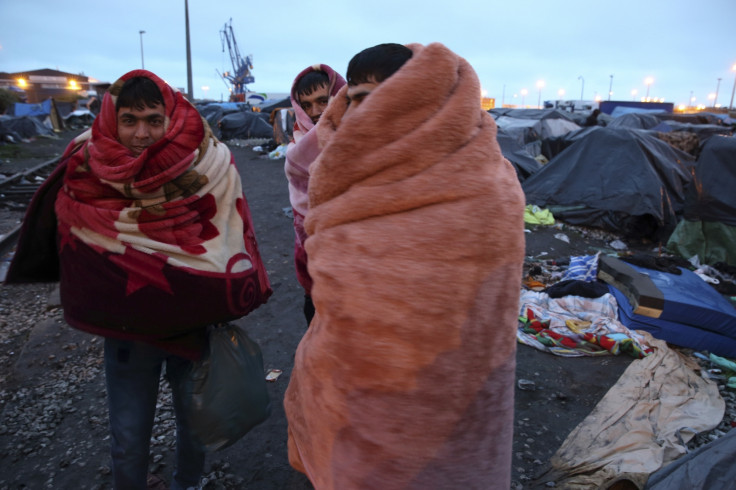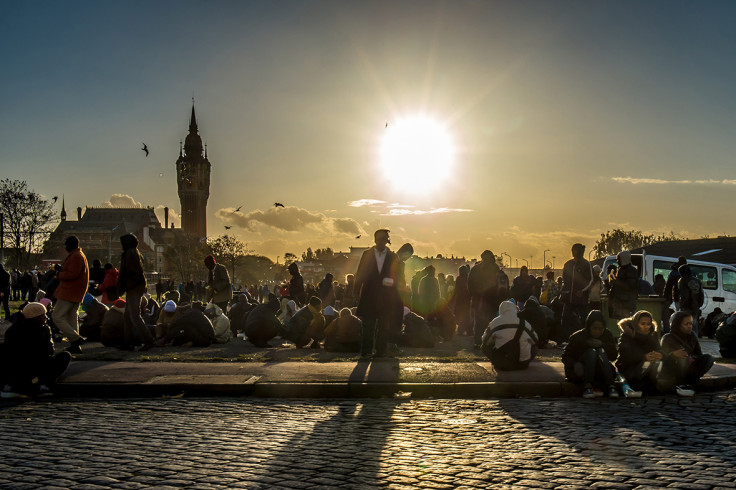Number of illegal immigrants caught trying to enter UK quadruple in three years

Government data has revealed that the number of illegal immigrants trying to enter Britain has almost quadrupled over the last three years.
According to Home Office data, around 3,000 illegal immigrants a month have been trying to cross the border and, in the first four months of 2014 alone, 11,920 entry attempts were stopped at Calais and British ports.
The data, which was obtained by the Telegraph as part of a Freedom of Information request, also showed that the number of migrants caught trying to enter Britain hit 19,003 in 2013, double the 9,632 who tried to enter in 2011/12.
"We continue to strengthen the security of our borders to stop those who have no right to enter the UK. We have made significant investment in ports in Northern France to improve security and infrastructure," said a Home Office spokesperson in response to the report.
"Using some of the best technology in the world, our officers prevented more than 18,000 attempts to cross the Channel illegally in the year to April 2014 – a rise of more than 60 per cent on the previous year.
"We have also committed £12m to further bolstering security at Calais and driven down the cost of back-office functions, allowing us to invest more in front-line operations."
Illegal immigration and net migration

French authorities estimate that the number of illegal immigrants in Calais alone has increased by 50% over the last year.
However, this is mainly due to humanitarian crises in the Middle East, with thousands of people displaced due to civil wars.
The Home Office originally pledged £12m (€15m, $19m) to bolster security in Calais, which is seen as the main gateway for illegal immigrants, amid growing sanitation problems and violent clashes with locals.
In October France sent in 100 more police officers to help deal with the problem in Calais. While France now have 450 officers down on the ground in the port, Britain has no police presence there.
In November, France's interior minister begged British police to come to Calais to help sort out the "tremendous problem" over illegal immigrants, who are mainly from Eritrea, Ethiopia, Sudan and Syria, setting up camp and trying to cross the Channel to the UK.
Experts say that the immigrants from around the world are targeting the UK and even force their way onto ships as Britain is becoming one of most 'attractive' countries in the world to relocate.
"The sharp rise in the number of clandestines might reflect more effective detection but an increase on this scale is more likely to be due to increased pressure on our borders," said Lord Green of Deddington, the chairman of Migrationwatch, in response to the report.
"Part of that may be due to deteriorating conditions in the Middle East and Africa but there is little doubt that the freedom of our society, the existence of a black market in labour and the presence of relatives and friends add up to making the UK a very attractive destination.
"The government are seeking to make it more difficult to live in Britain illegally but it will take some time for recent measures to take effect."
Meanwhile, the UK government is also under fire for not fulfilling promises about legal migration.
In 2010, the Conservatives' election manifesto said: "We will take steps to take net migration back to the levels of the 1990s - tens of thousands a year, not hundreds of thousands."
However, the latest number is significantly above the party's stated aim to reduce net migration below 100,000.
The Office for National Statistics data showed that net migration - the numbers coming to live in Britain minus those leaving - rose by 78,000 from the previous year, standing at 260,000.
Critics from the opposition say his is plan is now "in tatters".
Britain's relationship with the EU has become fraught over the last few years over immigration issues, while Cameron is under increasing pressure from the likes of Ukip.
© Copyright IBTimes 2025. All rights reserved.





















